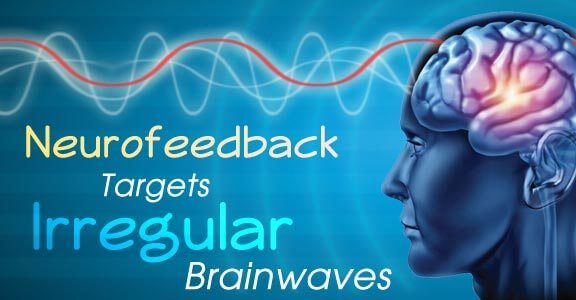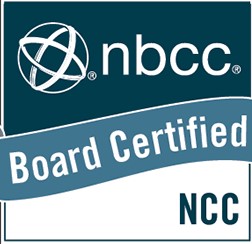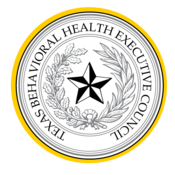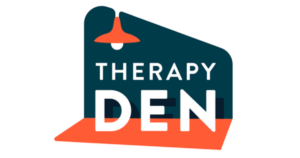
Peace & Balance In Your Life
Anand Vyas, Ph.D., NCC, LPC (Licensed Professional Counselor), also known as Dr. V., has a passion to help heal clients from the inside, so they can truly feel their best. He believes that the most optimal treatment is to treat the whole person. He specializes in showing children, adolescents, adults and seniors how to reach their full potential and how to experience total health by using evidence-based treatment approaches of psychotherapy / counseling and also by using coaching, mindfulness, meditation, therapeutic hypnosis, yoga therapy, and breathwork.

PSYCHOTHERAPY/COUNSELING:

LIFE COACHING:





MEDITATION:
“Meditational practices are an excellent method to deal with emotional issues, phobias and relationship conflicts which are hidden in the usually inaccessible recesses of the unconscious part of the mind. Each person can become his own psychoanalyst. Once the problems are recognized, they can be addressed, by autosuggestions and by the system of psychological and yogic desensitization. As these problems are progressively addressed, one’s life will simultaneously undergo a transformation towards integration and happiness.”….Satyananda Saraswati
“Gus’s scans showed that it takes less than two months to alter the overall neural functioning of the brain. This is amazing because it demonstrates that we have the power to consciously change our brains, and improve our neural functioning, in far less time than scientists used to think… we can see permanent changes in single neurons in a matter of days, and as other studies have shown, most forms of meditation will create subtle but significant changes in a couple of months.”…Andrew Newberg & Mark Robert Waldman

MINDFULNESS
“MBCT has been clinically proven to be at least as effective as drugs for depression. In simple English, ‘it works.’ But more importantly, it also works for the rest of us who aren’t depressed but who are struggling to keep up with the relentless demands of the modern world. In short, Mindfulness helps you meet the worst that life throws at you with renewed courage.” Penman, D
Life can be relentless, frantic and exhausting – but it doesn’t have to be this way… Mindfulness can change the banter inside our heads from chaotic to calm.

BREATHING EXERCISES (BREATHWORK):
“Breathing exercises have been shown to positively affect immune function, hypertension, asthma, autonomic nervous system imbalances, and psychological or stress-related disorders.” …Jerath
“The research is very clear that breathing exercises can enhance parasympathetic (inhibit neural responses) tone, decrease sympathetic (excitatory) nervous activity, improve respiratory and cardiovascular function, decrease the effects of stress, and improve physical and mental health”. …Pal, Velkumary, & Madanmohan

THERAPEUTIC HYPNOSIS:
“Most people walk through the word in a trance of disempowerment. Our work is to transform that into a trance of empowerment.” …Dr. Milton H. Erickson

NEUROFEEDBACK:
Neurofeedback meets the American Association of Child and Adolescent Psychiatry’s criteria for ‘Clinical Guidelines’ for the treatment of ADHD, seizure disorders, depression, reading disabilities, addictive disorders, and anxiety (e.g., obsessive-compulsive disorder, generalized anxiety disorder, post-traumatic stress disorder, phobias).
Research findings indicate that people with ADHD have an excess of theta brain waves and fewer than average beta brain waves. Researchers that support using neurofeedback to treat ADHD believe that neurofeedback training decreases theta brain waves while increasing beta brain waves; therefore, decreasing ADHD symptoms by increasing arousal.

The 20th Century was known as an “Age of Anxiety.” While the 21st Century is known as an “Age of Frustration.” The man has put his foot on Moon, but he has to face anxiety, frustration, etc. constantly on Earth. Today we have forgotten the art of peaceful living. The present age is known as the age of “cutthroat” competition. Everyone is in a rat-race to get ahead. In the race of power and wealth, only some get the garland of victory. The rest of the people get disappointment and frustration. Such disappointed and frustrated people feel a sort of tremendous mental stress and strain. We can only withhold this stress and strain up to a certain extent. Like a camel on which we load more and more weight, a stage will come when it will not even be able to bear the weight of a piece of grass. The camel will fall. Similarly, this happens with us too. We face life’s intolerable anxieties, frustrations, stresses and strains to a certain extent, but if the load of anxieties, frustrations, stresses, and strains exceeds the limit of our tolerance, we become highly stressed out. We may become neurotic. We may also become the patient of Diabetes, Ulcer, Blood Pressure, Heart Disease, Migraine, Sleeplessness, Arthritis, and Depression. We also may undergo a “nervous breakdown.” We may start thinking about suicide. “Life is not worth living, there is no hope in life, and no one will be able to free me from such severe pain of stress, strain, etc.” such feelings may overcome our mental stability.
Nowadays we have become physically healthy. Our life span has also increased, but our mental health has deteriorated. One is like a passenger who has lost the direction of his/her destination. More than 50% of patients visiting doctors have emotional problems rather than physical problems. They need a professional who can listen and process their thoughts and feelings to assist them with compassion. Along with Allopathy, Homeopathy, Naturopathy and all other ‘Pathies’, they need counseling, psychotherapy, compassion, and mind relaxing techniques like “Anand Meditation” which can be life-enhancing. We really need guidance to lead our life to the path of happiness, peace, sound health, and success. A Licensed Professional Counselor/Life Coach/Certified Yoga Instructor/Certified Stress Management and Medical Meditation Consultant/Certified Anger Resolution Therapist/Hypnotherapist is the right person who can help you in this age of anxiety, frustration, and depression.

I know that there are a lot of things that “I don’t know that I don’t know.” I truly believe that my knowledge is like a kid who is picking up shells from the seashore. Just like that old fable the one about the blind man and the elephant…They were all asked to describe an elephant and each blind man came up with different answers depending on what part of the elephant they touched. The man who touched the legs thought that the elephant was like a tree. The man who touched the elephant’s side believed that it resembled a wall. The man who touched the elephant’s trunk was certain that it was a snake. So they argued and argued…Each person was positive that they were correct, and the truth was that they all were! Similarly, in this age of anxiety, frustration, and stress, different people have different views as to what brings happiness and harmony in their life. These views are based on our different environment, education, and life experiences. For me, I “touched meditation” and found that it could be life-saving and enhancing. I have been teaching meditation sincerely and honestly to others the way I “experienced it.” I teach it in such a way that others can easily and effortlessly meditate. Once one learns meditation from me, they may only need to spend 5 minutes a day to meditate.
There is no religious association, but I teach practical meditation that can be used in day-to-day life by everybody. When you learn meditation from me, you may go into a deeper, relaxing healing state of mind and may experience the power of our brain receptors such as, “Anandamide” which means bliss or delight. Our brain has receptor sites for neuropeptides that mimic marijuana, giving us a natural “high” along with other spiritual, health, and emotional benefits. Just like we have a stress system, we also have a relaxation system.
Experience your “relaxation system” and start experiencing well-being which can be anti-aging, anti-cancer, anti-heart disease, anti-microbial, and anti-neurodegenerative disease.

1. Therapy is for crazy people
2. Therapy is a lifelong process
3. Therapy will break your bank
4. Therapists will blame you for your problems
5. “There’s nothing that medication can’t solve!”
6. Counselors are just paid friends
7. Therapists are just passive listeners
8. Therapy can’t help you move on any quicker
9. Seeking therapy is a sign of weakness
10. Therapy will make me feel worse

Helping a Family Member Seek Counseling: A Guide
We often recognize signs of distress in our loved ones before they even realize it themselves. Yet, it can be challenging to encourage someone to seek professional help. Understanding how to approach this delicate situation can make all the difference.
1. Open a Dialogue: Starting a conversation can be difficult, but it’s crucial. Express your concerns in a compassionate, non-confrontational manner. Use “I” statements, like “I have noticed…” or “I feel worried when…” to prevent them from becoming defensive.
2. Provide Information: Sometimes, individuals may avoid therapy due to misconceptions or a lack of accurate information about what counseling involves. Offer clear, factual information about the purpose and process of therapy, emphasizing its role in supporting mental well-being and personal development. Clarifying that seeking help is a positive and proactive step may encourage a more open and accepting perspective towards counseling.
3. Offer Support: Emphasize that you are there for them, whether it’s accompanying them to their first session or just lending a listening ear. Your support can help reduce their anxiety.
4. Explore Telehealth Therapy Options: If traditional face-to-face therapy does not appeal to your loved ones, suggesting telehealth therapy as an alternative can be helpful. Telehealth allows individuals to access counseling and support from the comfort of their own homes, which might be a more comfortable and convenient option for them.
5. Avoid Ultimatums: Threatening or forcing someone can backfire. It’s essential to understand that everyone is on their journey and must seek help in their own time.
6. Educate Yourself: The more you understand about mental health and therapy, the better you can help your loved one. Research conditions you believe they might be struggling with, or therapy processes to have informed discussions.
7. Encourage Self-help Techniques: While waiting for professional help, introduce them to relaxation techniques, mindfulness, or books that might help.
FAQs:
Q: What if my loved one denies needing help?
A: Be patient and provide them with information when they are receptive. It’s essential to let them realize their need at their own pace.
Q: What if my family member refuses to acknowledge their issues?
A: Remain supportive and understanding. Continually forcing the topic may increase their resistance. It’s important to give them space and time, and be there when they’re ready to talk about it.
Q: How do I approach the subject without making them feel attacked?
A: Approach the topic when both of you are calm. Be compassionate, listen actively, and ensure they understand you are coming from a place of concern and love.
Q: What if they are afraid of the stigma surrounding mental health counseling?
A: Educate them about the common misconceptions and stigmas around mental health and reinforce the importance and normalcy of seeking help. Share examples of successful individuals who have benefited from therapy.
Q: What if I fear they might harm themselves?
A: If there’s an immediate threat, call emergency services or a crisis hotline. Your loved one’s safety is paramount.
Q: How do I deal with the frustration of my loved one not seeking help?
A: It’s important to manage your own stress and emotions. Seeking support from friends, family, or a therapist can provide you with the necessary tools and perspective to cope with the situation effectively.
Q: How can I help my loved one if I’m struggling with my own mental health?
A: Prioritize your wellbeing, seek support for your mental health needs, and employ self-care strategies. Maintaining your mental health allows you to effectively support your loved one.
Helping someone realize they might benefit from therapy is a delicate process. With patience, information, and understanding, you can be a significant pillar of support for your loved one during a challenging period. Remember, it’s always okay to seek guidance for yourself to navigate this process more effectively.

TIPS FOR ENJOYING YOUR THANKSGIVING MINDFULLY
- Avoid Conflicts:Thanksgiving can be a stressful time as you may have views that differ from your family. Avoid topics that may cause conflict in opinions and views. Do not take things personally and “let it go.”
2. Be generous (in your actions and thoughts):
Lend a helping hand when you can. Love and accept your family–imperfections and all. Celebrate your differences. When you are communicating with someone, do not interrupt that person and let him/her finish what he/she wants to say. If you are listening, just listen without thinking this is wrong or I’m gonna say “XYZ” when he/she finishes.
3. Cook and clean mindfully:
You can cook mindfully. If you are cutting something in the kitchen, just say “I’m cutting…I’m cutting…I’m cutting” and just cut. If you are frying something, then you can say to yourself “I’m frying…I’m frying…I’m frying” and just fry. Do not try to do multiple things at once which can be dangerous. You can clean your home mindfully as well. If you are vacuuming your house, then just vacuum. If you are washing a few dishes, then feel the warm or cold water on your skin and enjoy the aroma of the soap.
4. Eat small portions:
Do not feel obligated to eat large portions of food to please your host. Take small portions, say thanks and carry-on. Eat mindfully and pay full attention to the first three bites that you eat. Involve your senses. Enjoy the aroma, taste, texture, and the color of the food. Eat and savor one bite at a time.
5. Don’t feed your emotions:
Avoid eating out of boredom or to mask uncomfortable feelings. Do not distract yourself by eating junk or try to numb yourself by drinking alcohol excessively. Remember, alcohol is a depressant. It can make you more depressed.
6. Take time for yourself:
Remember to put an oxygen mask on yourself first. While you may be busy preparing for your guests, preparing to travel or busy mingling with family and friends, don’t forget to take a few minutes for yourself to breathe, meditate and practice mindfulness.

Dr. V.’S 4 MINDFULNESS TIPS AS YOU CELEBRATE THE HOLIDAYS AND RING IN THE NEW YEAR:
1. DON’T FEED YOUR OVERWHELMING THOUGHTS & EMOTIONS:
For many, the holidays can bring memories of some past traumatic life experience, grief or loss. It may be hard if your loved ones are not there with you. Put yourself in someone else’s shoe and have some compassion for them. Recognize whatever emotions come up rather than running away from them or wrestling with them. Accept them and just be aware of your breath. Also, avoid eating out of emotional pain or to mask uncomfortable feelings. Do not distract yourself by binging on unhealthy foods or try to numb yourself by drinking alcohol excessively.
2. PUT AN OXYGEN MASK ON YOURSELF FIRST:
If you don’t think about yourself this holiday season and if you try to please others by ignoring yourself and if you have a hard time saying “No,” then that may lead to resentment and burnout. You may be busy preparing for your guests, preparing to travel or busy mingling with family and friends. Don’t forget to take a few minutes for yourself to breathe, meditate and practice mindfulness. Try and shift your attention from overthinking to your present physical sensations and experiences— the coming and going of your breath, the weight of your feet against the floor, your back against the chair and your clothes against your skin. Try to bring yourself back in the “now.” Also, don’t compromise your sleep, appetite, and exercise. Do something that makes you happy! 🙂
3. AVOID CONFLICTS & BE GENEROUS IN YOUR ACTIONS AND THOUGHTS:
Family get-togethers can be a stressful time as you may have views that differ from your family. You cannot change the way your family and friends think as change comes from inside out, not outside in. Avoid topics that may cause conflict in opinions and views. Do not take things personally and “let it go.” Love and accept your family the way they are. Celebrate your differences. If your family members can’t make it to your gathering or they change their plans at the last minute, and you have everything planned your way, then roll with the changes, accept it and let go of your expectations to do things your way.
4. BE GRATEFUL:
Spend some time each night during the holiday season reflecting on the good things that happened to you throughout this year. Before you fall asleep, ask yourself: What moved me today? What surprised me today? And I’m grateful for_______. (Fill out the blank). Try to practice random and non-random acts of kindness. Be grateful for your blessings and pay attention to the joy that is around you which is the spirit of the holiday season. Also, try and come up with some helpful intentions for yourself, your family, your nation and the world for the new year!
Subscribe to our Awesome Newsletter.
Scheduling an appointment has never been so easy
> The best way to set up an appointment is to schedule a free 15-minute call.
To set up a free 15-minute call, please click on the “Let’s Talk” or "Get Started" button below and fill out the form. Dr. V will call you at the time you have specified on the form. The information you provide on this form will remain confidential and secure.
Dr. V will help answer questions about his services and therapy in general. This free 15-minute call does not establish a therapist-client/patient relationship as this is not counseling and/or life coaching.
If we mutually find that our services work well for you, we’ll schedule a time to have an initial appointment. You’ll get a link to fill out intake forms using our secure client portal. You can create a free account on our secure EMR (Electronic Medical Record) system.
> We offer evening and Saturday appointments!
> Interested in starting your journey towards a better self with your very own counselor therapist in Sugar Land, TX?











